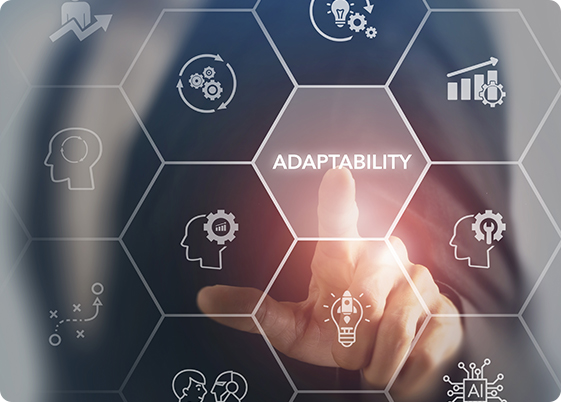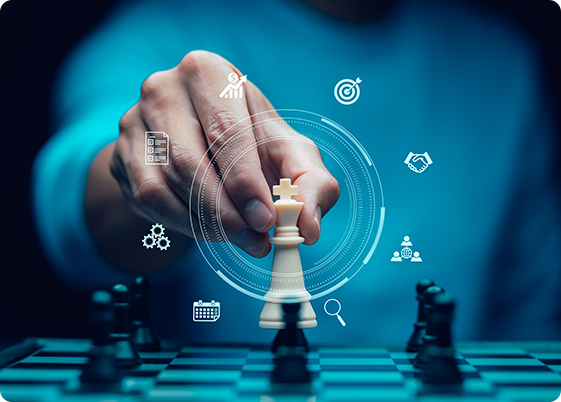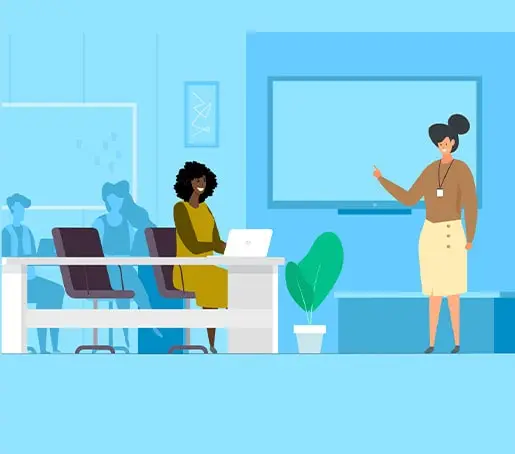
Leadership is no longer reserved for those in top management—it’s a vital skill at every career stage. Whether leading a project, mentoring a colleague, or driving change in your team, developing leadership skills can fast-track your career growth. Employers value professionals who take initiative, solve problems, and inspire others in today's dynamic workplace.
This blog will explore practical ways to build leadership skills that help you stand out, gain influence, and unlock new opportunities, regardless of your job title.
Why Do Leadership Skills Matter?
You must build leadership skills to thrive professionally and reach your full potential. Great leaders transform everyday individuals into inspiring motivators, supportive mentors, and nurturers of potential.
Effective leadership fosters a culture of proactive problem-solving, enhances task management, and encourages collaboration among team members.
Whether in customer service, project management, or information technology, these key leadership skills can enhance your professional credibility and positively influence your team. Modern leadership is less about holding titles and more about empowering people to achieve meaningful results.
Key Leadership Skills for Career Growth
To improve as a leader, you must cultivate several core competencies. These key leadership skills set the stage for career progression and long-term growth.

Effective Communication
Great leaders communicate succinctly, precisely, and sympathetically. Communication shapes alignment, whether you're leading meetings, presenting ideas, or dealing with feedback. Communication can significantly strengthen or weaken team dynamics in a diverse and multilingual country like India.
Emotional Intelligence
Emotional intelligence allows you to remain calm under pressure, relate to your team, and effectively navigate emotional triggers. Leaders with high EQ are crucial in diverse teams because they foster trust, resolve conflicts, and cultivate positivity, which are essential when building leadership skills.

Adaptability
India's commercial landscape constantly changes — from shifting client behavior to digital disruption. Leaders must be agile and change-oriented. Being adaptable means embracing ambiguity, learning fast, and staying effective despite challenges — one of the core ways to improve leadership effectiveness.
Decision-Making
Career growth often demands quick, strategic decisions made with limited information. A good leader balances risks, stays open to feedback, and adapts. Developing strong decision-making is critical when you're aiming to improve your leadership skills.

Team Building
A true leader empowers others. Encourage collaboration, recognize achievements, and support professional growth. Instilling trust and motivation can define exceptional performance when managing an in-office or remote team. This is one of the most impactful activities to improve leadership skills.
Strategies to Develop Leadership Skills
Leadership is built through continuous learning, feedback, and mindset shifts. Here are practical ways to improve leadership skills that apply across industries and job roles:
Seek Feedback
Ask for feedback from mentors, managers, or colleagues. This will reveal how your leadership is perceived and your blind spots.
Regular feedback reflects emotional maturity and a commitment to improve your leadership skills.
Related: Keys to success in customer service
Embrace Continuous Learning
Stay ahead by investing in personal development. Enroll in leadership development exercises on Coursera, Udemy, or NPTEL platforms. Choose courses in communication, team management, and decision-making.
You can also read leadership books or attend business webinars to expand your knowledge base and improve your leadership skills.
Practice Self-Reflection
Look inward to lead outward. Reflect on handling pressure, connecting with people, and making decisions. Maintain a leadership journal or schedule weekly reviews — these activities to improve leadership skills will deepen self-awareness.
Try engaging in activities to improve leadership skills, like journaling, coaching simulations, or storytelling exercises.
Take Initiative
You don’t need a title to lead. Start by owning projects, proposing improvements, or mentoring juniors. Taking initiative signals proactivity — a trait highly valued when building your leadership skills.
Explore: Why choose a contact center career?
Find a Mentor
Mentors provide valuable advice, guidance, and accountability. Choose someone who inspires you and understands the Indian workplace. LinkedIn, industry meetups, and internal mentorship programs are excellent places to connect.
A mentor doesn't just guide — they challenge you to grow and stay consistent as you build your leadership skills.

Leadership Challenges and How to Overcome Them
Leadership offers great rewards but comes with its challenges. Dealing with potential challenges can help avoid them.
Organisations face specific common leadership issues:
- Imposter Syndrome: New leaders often doubt their abilities. Maintaining a record of accomplishments and positive self-talk can boost confidence.
- Communication Breakdowns: Miscommunication can lead to confusion among team members. To address this, hold regular feedback meetings, explain your expectations, and allow your team to provide feedback.
- Burnout and Stress: Delegation, mindfulness, and breaks help manage stress. Practicing balance is one of the most underrated ways to improve leadership effectiveness.
Participating in leadership development exercises like coaching simulations and group problem-solving builds resilience and improves real-world performance.
Great leaders aren’t those who avoid failure, but those who grow from it.
Conclusion
Developing leadership is a long-term journey of self-discovery, strength-building, and consistent learning. Focus on key leadership skills, embrace continuous feedback, and stay proactive in your growth journey. These efforts will enhance your career, uplift your team, and build stronger workplaces.
Some of the best leaders are not the loudest—they are empathetic, dependable, and eager to grow.
View open roles in customer service jobs and start your leadership journey with HGS India.
Frequently Asked Questions (FAQs)
How long does it take to develop strong leadership skills?
Leadership takes time to develop. As you focus on calibration, you should see an improvement in your skills within 6 to 12 months.
What’s the difference between leadership and management?
Being a leader entails having vision, influencing others, and providing support. A manager's primary responsibility is to plan, organise, and ensure that all tasks are correctly completed.
What are the top mistakes to avoid when developing leadership skills?
Don’t constantly interrupt your team, ignore constructive feedback, disregard team morale, or believe leadership is about gaining control. True leaders put others first rather than focusing on their power.
How do I measure my progress in developing leadership skills?
Evaluate peer feedback, track project outcomes, how your communication affects others, and how you build confidence and make decisions.
 India
India Canada
Canada Colombia
Colombia Jamaica
Jamaica Philippines
Philippines UK
UK US
US SA
SA



